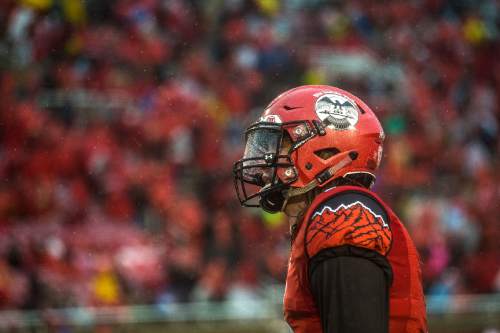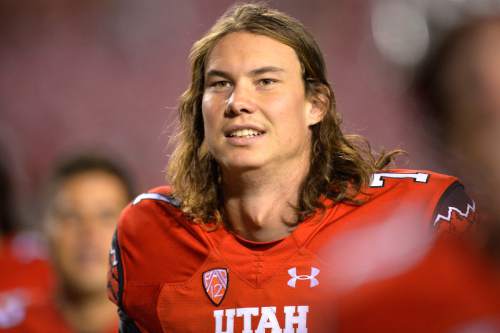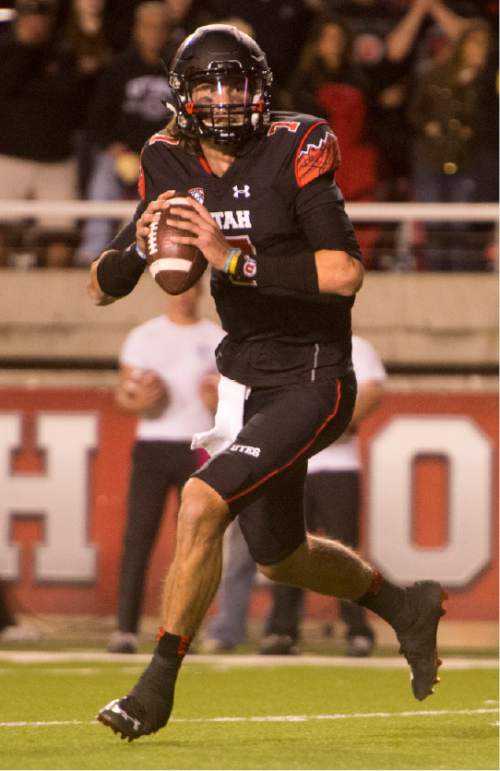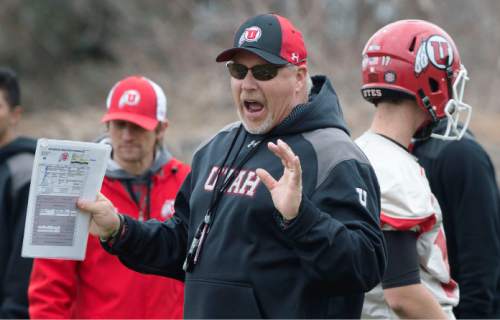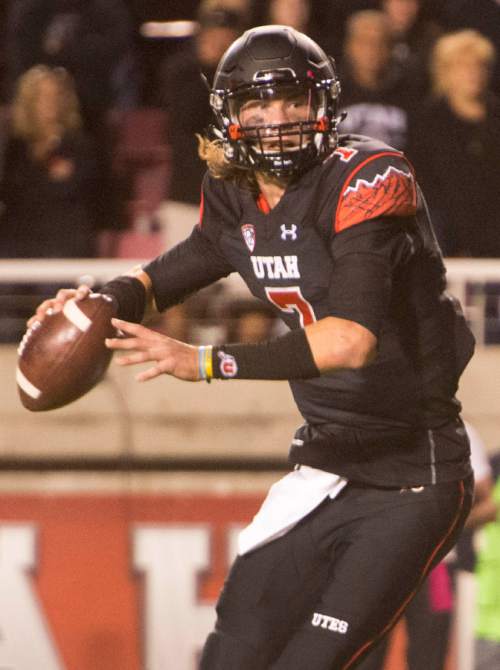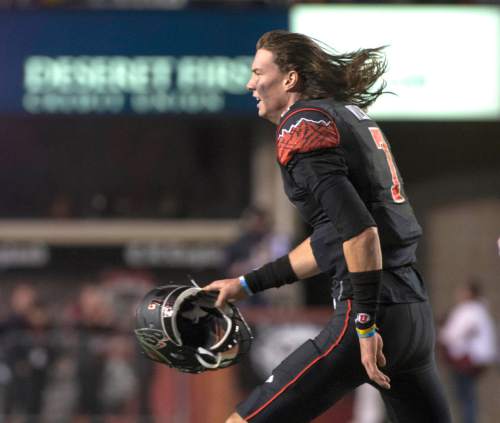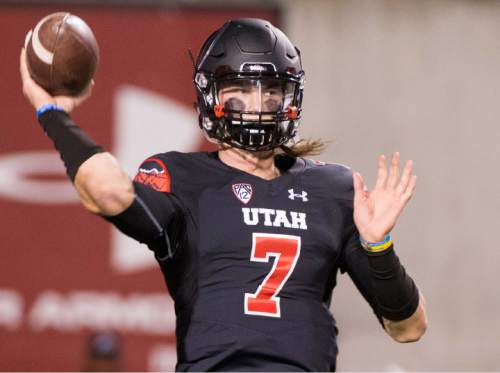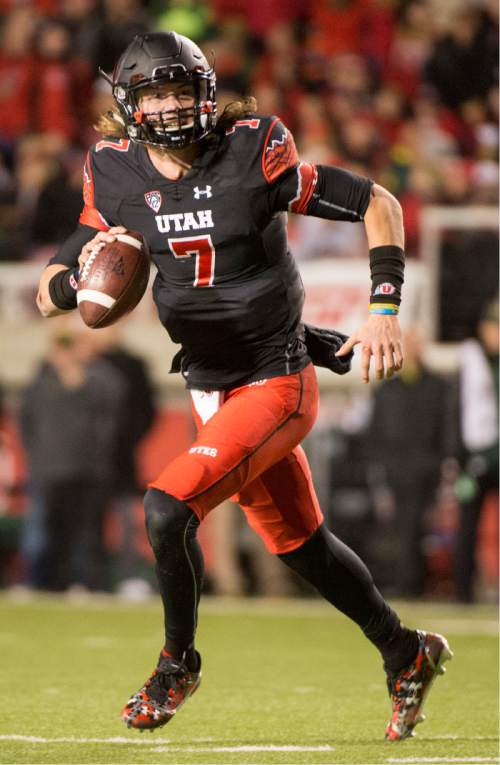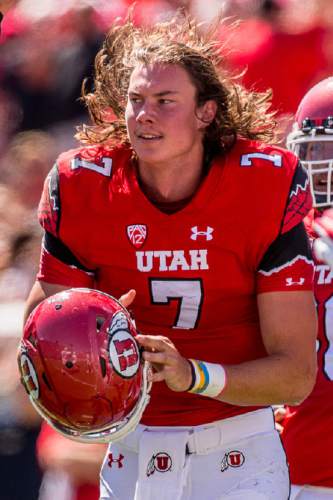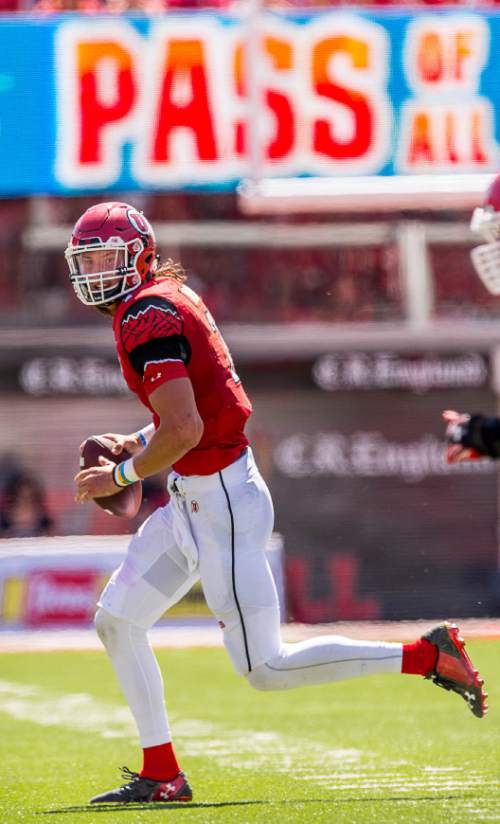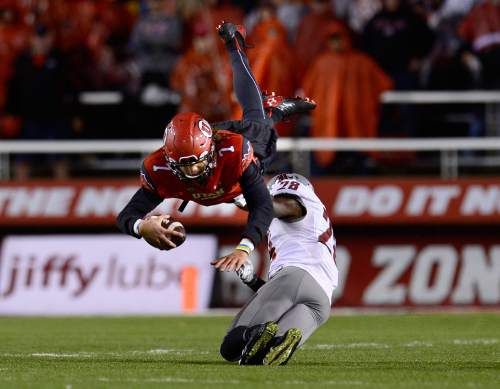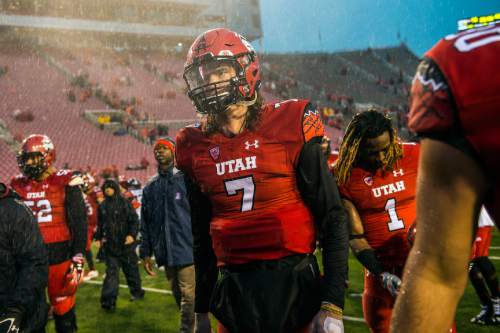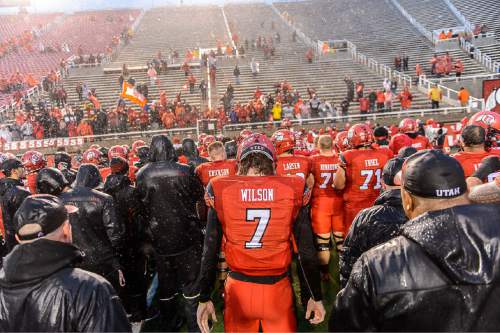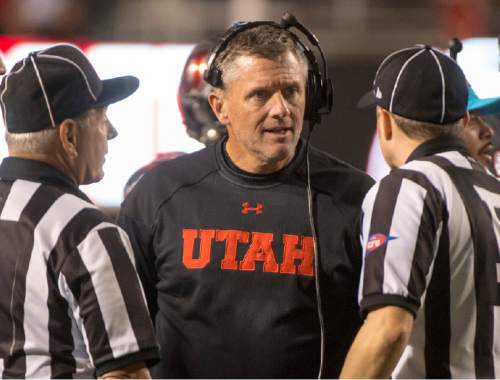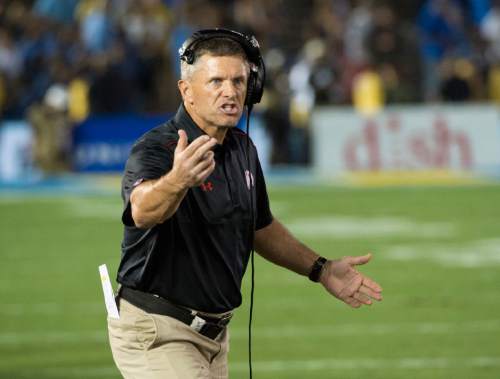This is an archived article that was published on sltrib.com in 2014, and information in the article may be outdated. It is provided only for personal research purposes and may not be reprinted.
Before we all gather to sing a requiem for the Ute offense, there are some things Kyle Whittingham could do, now that his job is safe, to resuscitate an attack that too often this season has been limited, listless and lifeless.
With only one regular-season game left, it might seem a bit too late for such resuscitation. But these suggestions go beyond this year, a year during which Utah has gotten by with toughness, defense and special teams. But, somewhere, on the great football field in the sky, innovators like Bill Walsh are shaking their heads, disapproving. If the Utes are ever going to transform their program to the upper reaches of the Pac-12, they won't be able to do it with a cautious Neanderthal mentality. To properly fight and win, they cannot do so with one furry fist tied behind their back.
A few recommendations, then, to elevate Utah's offense to a higher plane:
• Whittingham has to butt out of the offense.
He's the head coach, I get it, but one of the things that's become clear is that Kyle doesn't want his offense to win games, he wants it not to lose them. He's about defense and special teams and running the football. It's not as though he's got his nose in every aspect, he's not calling the plays, but he is strongly influencing a coordinator who should have more freedom. Look at it this way: If the boss walks over to his assistant and asks, "What the hell's going on here?" that assistant gets the message clearly.
Dave Christensen knows, in general, the kind of offense Whittingham prefers, and, as a result, has been put in a situation, in specific, where he guesses what the head coach wants, even when he's disinclined to do it that way. In the case of these Utes, that's created an overly cautious approach to offensive football. It's an offense that plays with a defensive mindset, and that's stymied its effectiveness.
• Give Travis Wilson confidence throws.
Wilson is not as bad a quarterback as he's seemed. He's been misused, screwed over, really. The coaches have done him no favors in what they've asked him to do, which is essentially, first and foremost, to avoid turnovers and bail out the run game when it's not working. They've given him little latitude to change plays at the line of scrimmage, a sorry predicament for a junior quarterback who already has the better part of two seasons of experience.
A quarterback is not unlike a pitcher who needs some throws to get into a rhythm, and that's a luxury Wilson has not had in Whittingham's favored ground-and-pound deal. Christensen could give Wilson easy throws early in games and on first and second down to offer him a little feel good that would pay off throughout — slants, swing passes, drag routes, screens and hitches, quick-hitters of all kinds.
The Utes have done a bit of that, but not nearly enough. Not only would creative variations of those throws give Wilson shots at high-percentage completions, building his confidence, it would take a load off a QB who doesn't handle pressure well. Think about it — what happens when Wilson feels pressure? He rolls out and runs. That's usually a win for the defense, even if he gains a few yards.
The offense could — and should — master the screen game in practice and use it often in live action. Go standard or mix in some creative wrinkles, such as moving targets from one side of the field to the other. Two bonuses in that regard: Wilson avoids the pressure that so often has troubled him and he gets the ball into the hands of, say, Devontae Booker who, from there, could work his wonders. Draw plays might accomplish similar results. Coaches know about the positive effects, they just don't spend enough time perfecting those plays. Pity.
Instead, the Utes run on first down, run on second down, then throw in a little play-action on third down, and, if there's any imperfection on that final play, the drive dies. That's happened too often this season.
It hasn't helped that Wilson has been hammered so hard about not throwing interceptions that he often freaks out, missing receivers wide and outside, where defensive backs have no chance to catch the ball. The problem is that neither do his receivers. Those plays have short-circuited a lot of offensive opportunities.
• Manipulate formations to get favorable one-on-one matchups.
If Kenneth Scott is the receiver the Utes want to get the ball to, run trips to the right and isolate Scott on the left. If Westlee Tonga is the guy, then do the same with him, and float Booker to that side, too, giving Wilson an awesome scenario regardless of who's open. Spread the defense out and go to a favorable matchup. If you're worried about Wilson's ability to make a read, a lot of times the isolation eliminates the read all together. Either the target is open or he's not. As is, there's not a lot of imagination in Utah's formations.
• Don't be afraid of opening up the offense enough to win 37-30 instead of always trying to grind it down to 20-17. Sooner or later, teams on any given occasion need a lot of points, and if the offense has been sheered back to the point of impotence, that's an issue, especially playing in the Pac-12, where prolific offenses are common.
One thing is certain: The thunder was purposely taken out of the offense, and while that has worked to the extent that a 4-4 league mark, with one Pac-12 game left, is better than a 2-6 record, the higher levels of what the Utes could become were always limited.
While most realists consider Utah's accomplishments this season a success, at some point, Whittingham will have to take the reins off his offense and open it up enough to reach for greater heights. Defense and special teams and the run game aren't enough to fight the fight alone.


